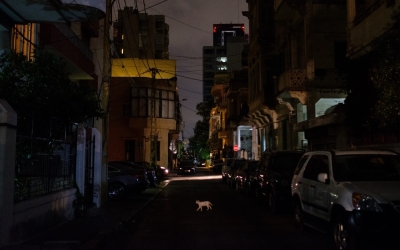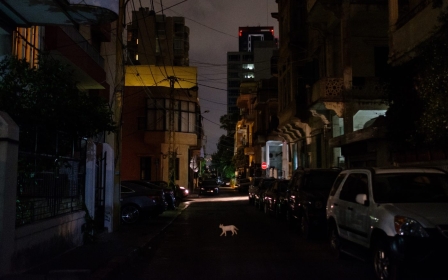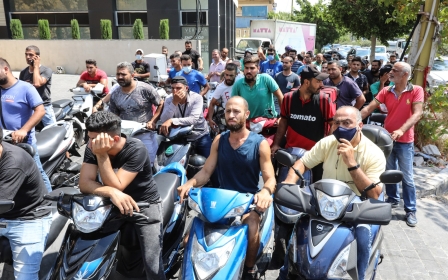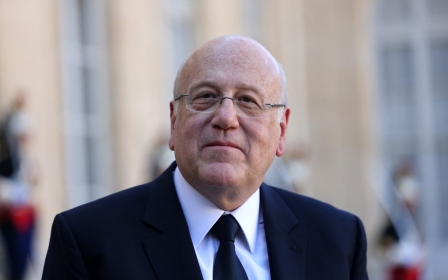Lebanon faces complete electricity blackout after months of fuel shortages

Lebanon is facing a countrywide electricity blackout after two of the country's biggest power stations shut down because of fuel shortages.
A government official told Reuters on Saturday that Lebanon will have no state-provided electricity for several days.
New MEE newsletter: Jerusalem Dispatch
Sign up to get the latest insights and analysis on Israel-Palestine, alongside Turkey Unpacked and other MEE newsletters
"The Lebanese power network completely stopped working at noon today, and it is unlikely that it will work until next Monday, or for several days," the official said.
A statement by Lebanon's state electricity company Electricite du Liban (EDL) confirmed that the thermoelectric plant stopped working at Zahrani power station after the Deir al-Ammar plant stopped on Friday because of fuel shortages.
EDL had repeatedly warned of the potential of a state grid failure by the end of September.
It added that it would temporarily use the army's fuel oil reserves to operate the power plants, but that would not happen anytime soon.
For decades, Lebanon has not experienced 24-hour electricity, and would often face daily blackouts lasting several hours - but the country's devastating economic crisis over the past two years, largely blamed on decades of corruption and mismanagement by the ruling class, has led to mass shortages of fuel in the country in recent months.
Many in Lebanon now rely almost exclusively on private generators that run on diesel but these are hard to find and expensive to run.
The Lebanese currency has lost over 90 percent of its value in the span of two years, in what is believed to be among the worst economic crises in the world since the 1850s.
To fill a medium-sized vehicle's tank, most Lebanese would now have to pay close to the monthly minimum wage of 675,000 Lebanese pounds ($43 on the black market), at a time when nearly 80 percent of the population is estimated to live below the poverty line.
Middle East Eye delivers independent and unrivalled coverage and analysis of the Middle East, North Africa and beyond. To learn more about republishing this content and the associated fees, please fill out this form. More about MEE can be found here.





